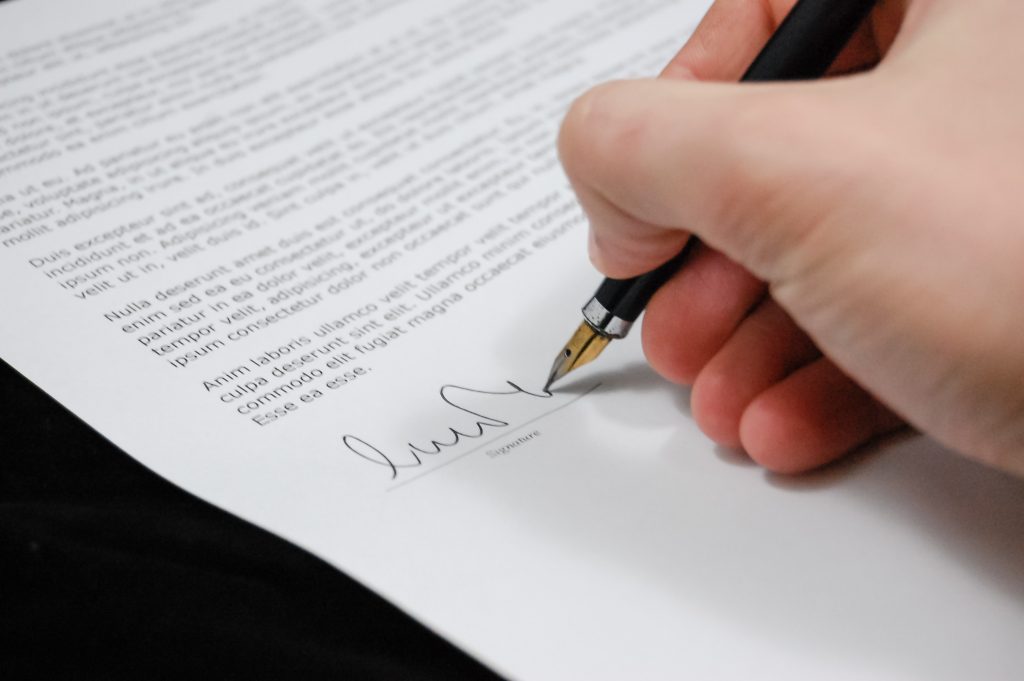Are you in need of legal support and guidance regarding domestic violence? Look no further. Our Domestic Violence Lawyer is here to offer you the reassurance and assistance you deserve. With years of experience and expertise in this complex field, our lawyer is dedicated to providing compassionate support to individuals who have experienced domestic violence. In this article, we will address common legal concerns and provide guidance to help you navigate through this challenging situation. Whether you are seeking advice on protective orders, custody issues, or divorce proceedings, our lawyer is here to support you every step of the way. Don’t hesitate to reach out and take the next step in seeking the assistance you need.
The Role of a Domestic Violence Lawyer
If you have found yourself in a situation involving domestic violence, it is crucial to understand the role of a domestic violence lawyer and how they can help you navigate the legal process. Domestic violence cases can be emotionally challenging and legally complex, but with the guidance and support of a qualified attorney, you can find the justice and protection you deserve. In this comprehensive article, we will explore the various aspects of domestic violence law, the signs of domestic violence, seeking help, choosing the right lawyer, and the legal process involved in domestic violence cases.
Legal Procedures and Services
Filing Restraining Orders
One of the first steps a domestic violence lawyer can assist you with is filing a restraining order. A restraining order, also known as a protective order, is a legal document that prohibits an abuser from contacting or coming near you. Your attorney will guide you through the process of gathering the necessary evidence and filing the necessary paperwork to obtain a restraining order. This will help ensure your safety and provide a legal barrier between you and the abuser.
Providing Legal Representation
A domestic violence lawyer will serve as your legal representative throughout the entire legal process. They will advocate for your rights and ensure that your side of the story is heard and understood. From gathering evidence to representing you in court, your attorney will work tirelessly to protect your best interests and secure a favorable outcome for your case.
Negotiating Plea Bargains
In some cases, a domestic violence lawyer may negotiate a plea bargain on your behalf. This involves working with the prosecution to reach a mutually beneficial agreement that may result in reduced charges or a lighter sentence. Your attorney will carefully analyze the details of your case and leverage their negotiation skills to secure the best possible outcome.
Preparing for Court
When a case goes to court, it becomes vital to have a domestic violence lawyer by your side. Your attorney will thoroughly prepare you for court proceedings, ensuring that you know what to expect and guiding you in presenting your case effectively. They will explain the legal procedures, help you understand your rights, and provide the necessary support and guidance throughout the process.
Providing Emotional Support
Dealing with domestic violence can be emotionally draining. A compassionate domestic violence lawyer understands the trauma you may have experienced and will provide the emotional support you need. They will listen to your concerns, offer reassurance, and be a source of strength during this difficult time. Your attorney will be your advocate both in and out of the courtroom, working tirelessly to ensure your safety and well-being.

Understanding Domestic Violence Laws
Defining Domestic Violence
Domestic violence refers to abusive behavior that occurs within a familial or intimate relationship. It can take various forms, including physical, emotional, psychological, financial, and sexual abuse. Understanding the legal definition of domestic violence is essential in recognizing when it occurs and seeking the appropriate legal recourse.
Types of Domestic Violence
Domestic violence can manifest in different ways, and it is important to be aware of the various types. Physical abuse involves any form of physical harm or threat, such as hitting, punching, or slapping. Emotional and psychological abuse includes actions that negatively impact a person’s self-worth and emotional well-being, such as humiliation or constant criticism. Financial abuse involves controlling or exploiting a victim’s financial resources, making it difficult for them to seek help or escape the abusive situation. Sexual abuse encompasses non-consensual sexual acts or coercion within a relationship.
Effects of Domestic Violence
The effects of domestic violence can be devastating and long-lasting. Victims may suffer physical injuries, emotional trauma, and psychological distress. The consequences of domestic violence can extend beyond the immediate victim, affecting children and other family members who witness the abuse. It is crucial to recognize the signs of domestic violence and seek help promptly to mitigate the potential harm caused by these actions.
Legal Consequences
Domestic violence is a criminal offense, and those found guilty can face severe legal consequences. These consequences can include significant fines, probation, mandatory counseling or therapy, and even incarceration. A domestic violence lawyer will guide you through the legal system, ensuring that you understand the potential outcomes of your case and working to minimize the legal penalties you may face.
Recognizing Signs of Domestic Violence
Physical Abuse
Physical abuse is often the most visible form of domestic violence. The signs may include unexplained injuries, frequent visits to emergency rooms or doctors, and a pattern of injuries that seem inconsistent with explanations provided by the victim. It is crucial to seek help if you or someone you know is experiencing physical abuse, as it can escalate and put lives at risk.
Emotional and Psychological Abuse
Emotional and psychological abuse can be equally damaging, even if there are no visible physical injuries. Signs of emotional and psychological abuse may include constant criticism, humiliation, manipulation, control, and isolation from friends and family. Victims of this type of abuse may exhibit low self-esteem, depression, anxiety, and an overall sense of helplessness.
Financial Abuse
Financial abuse involves controlling or exploiting a victim’s financial resources, making it challenging for them to seek help or become financially independent. Signs of financial abuse include restrictions on access to money, control over financial decisions, and preventing the victim from working or pursuing education. It is essential to recognize and address financial abuse to ensure the victim’s safety and well-being.
Sexual Abuse
Sexual abuse within a domestic relationship involves any non-consensual sexual act or coercion. Signs of sexual abuse can include forced sexual encounters, coerced participation in sexual acts, and sexual humiliation. Victims of sexual abuse may exhibit fear, anxiety, and avoidance of any intimate or sexual contact. It is crucial to provide support and resources to victims of sexual abuse and empower them to seek legal assistance.

Seeking Help for Domestic Violence
Contacting Law Enforcement
If you are in immediate danger or witnessing an act of domestic violence, it is crucial to contact law enforcement right away. Emergency services can provide the necessary aid and protection, removing you from immediate danger. The police will document the incident, gather evidence, and work with you to ensure your safety and well-being.
Reaching Out to Support Organizations
Support organizations dedicated to assisting domestic violence victims can provide valuable resources and guidance. These organizations often have hotlines staffed by trained professionals who can offer immediate assistance, safety planning, and referrals to legal aid. They can connect you with community resources and provide a supportive network during this challenging time.
Creating a Safety Plan
If you are in an abusive relationship, creating a safety plan is essential for your well-being. A safety plan involves developing strategies and taking steps to protect yourself and any children involved. This plan may include having a bag packed with essentials, identifying a safe place to go, and establishing a communication network of trusted individuals who can provide assistance when needed. A domestic violence lawyer can assist you in creating an effective safety plan tailored to your specific circumstances.
The Importance of Hiring a Domestic Violence Lawyer
When facing domestic violence charges, it is of utmost importance to hire a domestic violence lawyer who specializes in handling such cases. Domestic violence cases can be complex and emotionally charged, requiring a legal professional who understands the intricacies of this area of law. A skilled attorney will provide you with the support, guidance, and legal expertise necessary to protect your rights and seek justice.
Traits to Look for in a Domestic Violence Lawyer
Experience in Domestic Violence Cases
When choosing a domestic violence lawyer, it is crucial to consider their experience in handling similar cases. Experience speaks to their knowledge of the laws, the court system, and the strategies employed by opposing counsel. An experienced attorney will have the insight necessary to navigate the complexities of domestic violence cases and provide the best possible representation.
Strong Communication Skills
Effective communication is essential when dealing with domestic violence cases. Your lawyer should have strong oral and written communication skills to effectively present your case in court, negotiate with opposing counsel, and communicate with you throughout the legal process. Clear and consistent communication is vital to ensure that you are fully informed and involved in your case.
Empathy and Compassion
Dealing with domestic violence requires an attorney who is empathetic and compassionate. Your lawyer should understand the emotional toll that domestic violence takes on victims and should be able to provide the necessary support and reassurance. Empathy and compassion are crucial in building trust and ensuring that you feel comfortable discussing the details of your case.
Resourcefulness and Problem-Solving Abilities
Domestic violence cases often require creative problem-solving and resourcefulness. Your attorney should possess the ability to think strategically, analyze complex situations, and develop innovative solutions to protect your rights and achieve your desired outcome. A resourceful lawyer will explore all available legal avenues to ensure the best possible results for your case.
How to Choose the Right Domestic Violence Lawyer
Researching Local Attorneys
Finding the right domestic violence lawyer starts with thorough research. Look for attorneys in your local area who specialize in domestic violence cases. Take note of their experience, qualifications, and reputation within the legal community.
Reading Client Testimonials
Client testimonials can provide valuable insights into an attorney’s track record and client satisfaction. Look for testimonials on the attorney’s website or other reputable review platforms to gauge their effectiveness and their ability to deliver favorable outcomes for their clients.
Scheduling Consultations
Once you have narrowed down your list of potential attorneys, schedule consultations with each of them. During these consultations, ask questions about their experience, approach to domestic violence cases, and the strategies they employ. This will allow you to assess their compatibility with your needs and determine who is the best fit for your case.
Asking the Right Questions
Prepare a list of questions to ask during the consultations. Inquire about the attorney’s success rate in domestic violence cases, their understanding of local laws, and their overall approach to handling such cases. Don’t hesitate to ask about fees, payment plans, and what specific support they will provide throughout the legal process.

Seeking Compensation for Domestic Violence
Civil Lawsuits for Damages
In addition to pursuing criminal charges against your abuser, you may be able to seek compensation through a civil lawsuit. Your domestic violence lawyer can guide you through the process of filing a civil lawsuit for damages. This can allow you to seek financial compensation for medical expenses, therapy costs, lost wages, and other damages resulting from the abuse.
Obtaining Protective Orders
Protective orders provide legal protection against an abuser and can help ensure your safety by legally restricting their access to you. Your domestic violence lawyer can assist you in obtaining a protective order, also known as a restraining order, which prohibits the abuser from contacting or coming near you. This legal barrier can provide you with the peace of mind and protection you need.
Child Custody and Visitation Issues
Domestic violence can have a significant impact on child custody and visitation arrangements. Your attorney will work with you to develop strategies that prioritize the safety and well-being of any children involved in your case. They will fight for your parental rights and ensure that appropriate measures are taken to protect your children from any further harm.
The Legal Process for Domestic Violence Cases
Investigation and Arrest
The legal process for domestic violence cases typically begins with an investigation by law enforcement. If they find sufficient evidence, they may make an arrest or issue a warrant for the abuser’s arrest. During this process, your domestic violence lawyer can guide you in cooperating with the investigation and provide support every step of the way.
Arraignment and Plea
After the arrest, the abuser will go through an arraignment, where they will be formally charged. They will have the opportunity to enter a plea of guilty, not guilty, or no contest. Your attorney will advise you on the best course of action and represent your interests during this crucial stage.
Pre-Trial Motions
Pre-trial motions may be filed by your domestic violence lawyer to challenge the admissibility of certain evidence or argue for the dismissal of charges. These motions can significantly impact the outcome of your case. Your attorney will use their knowledge of the law to strategize and present compelling arguments on your behalf.
Trial and Sentencing
In cases that proceed to trial, your domestic violence lawyer will present your case in court and advocate for your rights. They will examine witnesses, present evidence, and cross-examine the opposing side’s witnesses. If the abuser is found guilty, your attorney will work to ensure that the appropriate sentencing is carried out, taking into consideration the unique circumstances of your case.
In conclusion, if you find yourself the victim of domestic violence, it is crucial to seek the assistance of a knowledgeable and compassionate domestic violence lawyer. They will guide you through the legal process, provide emotional support, and fight tirelessly for your rights and safety. With their expertise and dedication, you can find the justice and protection you deserve. Remember, you are not alone, and help is just a phone call away.